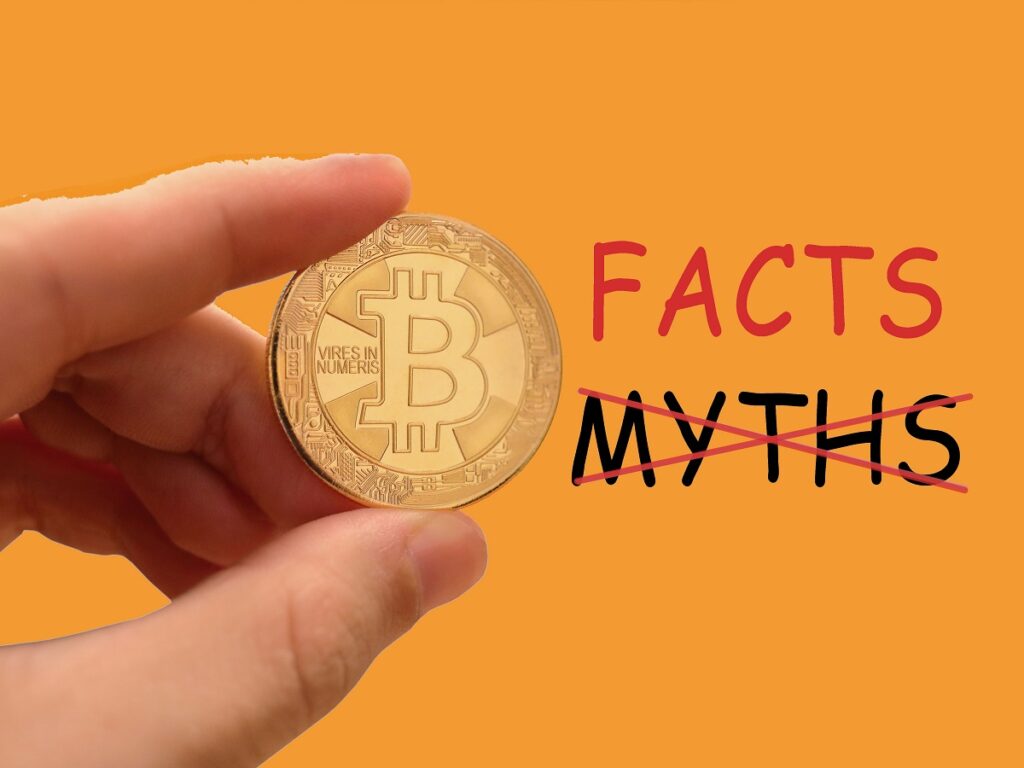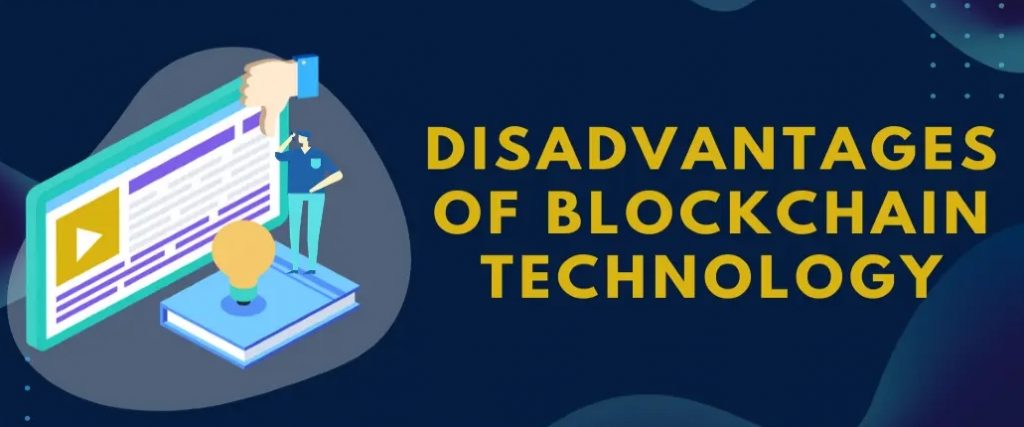Myths of Blockchain

Cryptocurrencies are one of the most talked-about technologies. Because it is pretty challenging to understand, ignorance gives rise to many myths about blockchain. If you can understand them, you can avoid many problems and use the technology more efficiently. Being held hostage to myths, you will not be able to reasonably assess all the advantages and disadvantages of the system.
Why are there so many myths around the blockchain?
History shows that if a person does not understand something, various myths immediately appear around a mysterious phenomenon. Blockchain is no exception.
Often people who do not understand the IT industry like to make bright, memorable articles. It leads to the fact that public opinion begins to change.
Experts active in this industry are constantly working to debunk various myths.
13 most common blockchain myths
There are many myths about IT technologies, so it is worth highlighting a few that will help reveal the truth about blockchain.
1. There is only one blockchain
If you read some material on various information platforms, you feel that there is only one blockchain on which all cryptocurrencies and applications work. But in reality, this is far from the case.
The creator of the first blockchain, Satoshi Nakamoto, made the code public. Anyone can take this as the basis of their software. Private and public blockchains exist today. For the needs of each client, you can create a separate blockchain that will meet all the requirements.
2. Blockchain can only be used for money
The blockchain infographic mainly discusses the connection between technology and the financial sector. On the one hand, the blockchain was indeed developed initially for cryptocurrencies. Nevertheless, there are now many applications based on this technology for different industries.
So, practice shows that it can deliver good results in such industries as:
- Logistics (for tracking goods, improving supply chains, tracking the number of resources spent, and much more);
- Tourism (booking tickets and hotel rooms, forming routes, etc.);
- Agriculture (control over fertilizers and irrigation, improving trust with partners);
- Heavy metallurgy (to prove low air emissions).
Many people forget that blockchain is a dispersed database needed to store information. All data is stored unchanged, recorded automatically when combined with artificial intelligence.
3. Bitcoin and blockchain are the same
There is an opinion that Bitcoin and blockchain are the same technology. To understand these two concepts, it is necessary to define them.
Bitcoin is the world's first cryptocurrency. Blockchain is a distributed database. Bitcoin works on the blockchain. The latest technology stores information about all operations and checks the ability to perform some tasks. For example, if the sender's account does not have enough funds to complete the transaction, the blockchain will block it.
It is worth remembering that Bitcoin works in a decentralized manner. You can send transactions without intermediaries in the form of banks and e-wallets. It is the blockchain that ensures the operation of any currency.
For each currency, the blockchain is prescribed individually.
4. Blockchain helps prevent theft and hacking
At the moment, this technology provides the best possible data and transaction protection. Nevertheless, the information regularly appears on the network that hackers successfully attacked the applications of bitcoin. The history of cryptocurrencies knows several examples when attackers hacked exchanges, withdrew all assets, after which the platform ceased to exist.
No matter how good the defense is, there is always a hacker who will set the goal of hacking it. When the blockchain began to be actively used, some hackers would withdraw money to their accounts and return the stolen money before the police could find the attacker. It can only mean that they were of little interest in money. They wanted to understand how the system functions and what vulnerabilities it has.
5. Blockchain is immutable
The blockchain was considered unchanged for a long time because even a person who owns all the information could not change it. However, the activities of hackers have shown that a loophole can be found here as well.
There are several registered cases when hackers could penetrate the system from outside and modify some data. The most significant hack happened with the DAO. Then the attackers stole $ 60 million and made severe changes to the blockchain chains.
It is worth noting that hackers could perform such complex manipulations only a few times. It is incredibly difficult.
6. Blockchain is cheap and economical
Blockchain allows you to save money on bank transfers. It is beneficial to use if you want to automate all processes or increase the efficiency of your departments. However, the blockchain does charge a specific fee for its services.
So, this is a distributed database stored not on one computer but several at once. Each computer is a node that stores the full version of the database and checks the ability to conduct transactions. Such equipment should have an excellent memory reserve and high performance. As a rule, such computers are costly.
In addition, the blockchain charges fees for its services. Usually, it is fixed and practically does not depend on the size of transactions; however, arguing that it is cheap is also not worth it.
7. Blockchain is only suitable for large corporations
Blockchain is a one-stop solution for any business. Modern IT companies can develop software individually for the needs of each customer. If you have a small company, it makes no sense for you to create a considerable blockchain. A small application will be created for you, which will be sufficient for your computer.
In general, no matter what you do, what income you have, blockchain can make it easier to do business.
8. The blockchain can store documents
Many people assume that blockchain is very similar to cloud storage. However, this is not entirely true. The technology does not store documents but only contains data where they can be found. Usually, users prefer to protect their data from prying eyes, so such storages have limited access.
In addition, if the blockchain could store documents, they would consume a lot of memory, which is not enough.
9. Blockchains are publicly available
This statement is only half true. Indeed, there are now fully public blockchains. However, most users prefer to use centralized blockchains. To get the required data, you need to have a key. It applies not only to finance but also to information.
In addition, there are databases where the owners of the information can decide for themself which data to make public and which private. Usually, they are used by companies that want to simultaneously keep corporate secrets (for example, how to achieve the ideal ratio of cocoa and milk in milk chocolate) and increase consumer confidence (how much palm oil is in this chocolate).
10. Criminals use blockchain
One of the main advantages of the technology is that it makes it possible to bypass government regulation. There are many reasons why people do not want to advertise their additional income, but this does not mean that they are criminals.
In addition, the technology supports smart contracts used by corporations around the world. They automate all agreements and avoid fraud. Law-abiding citizens can use them in unlimited quantities.
11. A smart contract is a legal contract
A smart contract is an agreement between two parties, but they are not legally binding. Instead, it is an alternative to classic agreements that are signed in the presence of a lawyer. When drawing up a smart contract, both parties prescribe the rights and obligations of each other. When all the conditions are met, money is debited from the customer's account in favor of the contractor. It allows you to avoid litigation if one of the parties fails to fulfill obligations.
12. Blockchain is a fashion trend that doesn't matter to the economy
Yes, blockchain is one of the most talked-about topics in the IT community, but this does not mean that interest in it is unfounded. Based on this technology, cryptocurrencies are created, but all the DeFi benefits of which are recognized by the governments of many countries.
Only a person who is not versed in cryptocurrencies and has not seen evidence of the effectiveness of distributed data times can argue that this is only a fashion trend that will soon pass.
What are the disadvantages?

It is important to understand that blockchain has its drawbacks like any other technology. Among the most basic are:
- Difficulty in understanding;
- It is easy to mistake the recipient's address;
- It is impossible to abandon regulation completely;
- There are many potentials, but the technology still requires many improvements.
It doesn't matter what kind of digital coin or token you use, and you cannot make transactions without using the blockchain. Many associate it with cloud storage even after starting to use it, but the difference is enormous. Without understanding the fundamental processes, you will not achieve a good result.
Conclusion
If you analyze all of the above, you can understand that the central myth is that many people believe there are no cons of blockchain. Today, numerous enthusiasts are fully confident that the future lies with this technology in the IT community. Such blind confidence leads to the fact that more and more vulnerabilities appear. Developers should always look for flaws in their product, and then it will develop and improve
